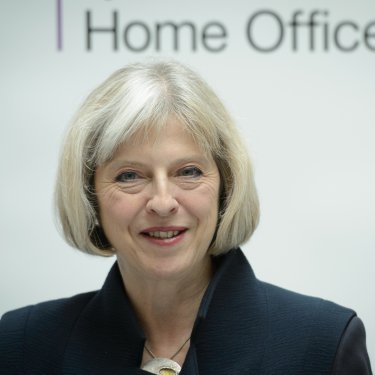RSF urges British parliament to amend “Snoopers’ Charter”

Reporters Without Borders (RSF) is concerned about a bill drafted by British Prime Minister Theresa May when she was home secretary that would allow the police and intelligence agencies to intercept, gather and store the communications of tens of millions of people including whistleblowers, journalists and their sources.
Dubbed the “Snoopers' Charter,” the Investigatory Powers Bill (IPB) was submitted by May to parliament last November and was approved by the House of Commons on 7 June. The House of Lords is due begin debating it on 5 September.
If passed, this law would allow the “relevant public authorities” to obtain journalists’ communications data with the aim of identifying or confirming the identity of anonymous sources.
This provision is all the more grave because the authorities would not be systematically required to give prior notice to journalists when they plan to obtain their communications data or hack into their devices.
If spied on without their knowledge, journalists would obviously not be able to challenge these procedures and defend their sources’ need for anonymity. And since they would be unaware of them, they would not be able to cover these secretive and dangerous practices.
The intelligence services would not need a warrant to carry out such spying but the police would need to obtain one from a “judicial commissioner” appointed by the prime minister.
The United Nations special rapporteur on privacy, Joseph Cannataci, voiced alarm in March about the prospect of “disproportionate, privacy-intrusive measures such as bulk surveillance and bulk hacking” and said the IPB’s adoption would set a dangerous precedent for other democracies, which could see it as a legal justification of spying on journalists.
Roy Greenslade, a journalist who covers media issues for The Guardian, has condemned the proposed law because of the danger that it would deter potential whistleblowers and would deter sources from going to journalists for fear of being identified.
Investigative journalism depends directly on the safety and often on the anonymity of sources. Withdrawing safety and anonymity would be a death sentence for the kind of investigative journalism that aims to expose what some people are bent on hiding.
“We call on the British parliament to reject the IPB in its current form because it needs amendments that guarantee specific protection for journalists and their sources,” said Pauline Adès-Mevel, the head of RSF’s Europe desk.
“The interception and analysis of journalists’ communications data should continue to be measures of last resort and should be perfectly transparent. There must be provision for warning journalists when their data is to be intercepted. And the concept of ‘overriding public interest’ is too vague. The law should define the extent of the judicial commissioner’s powers much more precisely.”
The interception of the communications data of whistleblowers, journalists and sources – and in particular the ability that the authorities would have to locate their devices – would also threaten the physical safety of those working in sensitive areas who do not want to risk being identified.
The IPB would replace the Regulation of Investigatory Powers Act (RIPA). If approved by the House of Lords, the entire parliament would then debate any amendments. It is due to take effect in January 2017.
The United Kingdom is ranked 38th out of 180 countries in RSF’s 2016 World Press Freedom Index.



